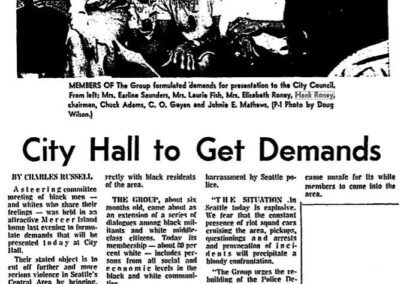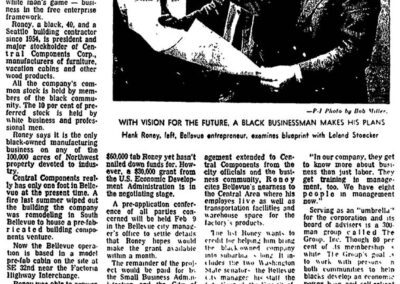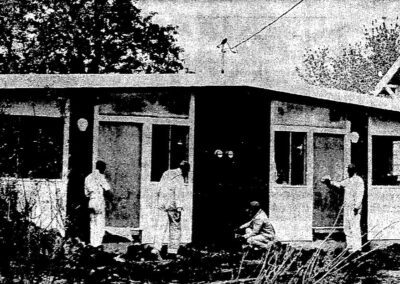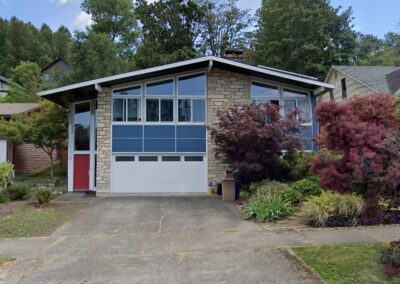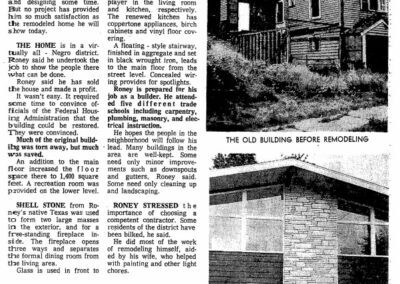
Roney, Henry V.
(1929 – 1996)
Seattle builder and part-time designer, Henry “Hank” Roney was one of the strongest supporters of civil rights for Black Americans in Seattle during the 1960s and 70s. His relentless advocacy helped change the construction business practices in Seattle and helped open many eyes to the racial divide in the city. Roney was a founding member and chairman of “The Group”, a multi-racial advocacy group which pushed City, County and State officials to consider fair and equal treatment of minority groups. They also strived to empower more minority owned businesses and sought to eliminate police harassment. In 1980 Roney and his peers helped the City and State pass “set-aside” policies requiring that twenty percent of public-construction contracts be awarded to minority businesses.
The ninth of ten children, Roney was born in the small town of Winnsboro, Texas in 1929. Reportedly he was doing masonry and pouring concrete when other 12-year-olds were playing baseball. Upon his high school graduation, he served in the Army Air Forces and then went to work for relatives in the home remodeling and construction business in Texas. Reportedly after attending five different trade schools for carpentry, plumbing, masonry and electrical, in 1954 he moved to Seattle where he and his brother founded one of the area’s first minority-owned construction firms. Roney built and remodeled houses mainly in the Central Area of Seattle, and often worked with architect, Benjamin McAdoo.
Reportedly Roney’s construction firm built many houses and he worked on the low bridge to West Seattle, Metro’s sewage-treatment plant in Renton, the new Interstate 90 floating-bridge pontoons, and several Port of Seattle terminal projects.
Later in his career, in 1968 Roney founded the Central Components Corporation, a prefabrication plant in Ballard. Makers of furniture, wooden boxes and pallets, the company was a for-profit organization, but also had a mission of training minority workers for skilled, higher paid jobs.
He was also co-founder the Central Contractors Association, and served as president of the Northwest Chapter of the Association of Minority Contractors in the late 1980s. In 1969 Roney got caught up in the case of the deadly shooting of Edwin Pratt, the director of the Urban League of Metropolitan Seattle. For a time he was the FBI’s top suspect, but was never charged, and later evidence indicates he was most likely not involved despite is open dislike for Pratt.
Roney passed away in Seattle on November 14, 1996.
– Michael C Houser
Roney Discusses Plans for New Central Components Corp Plant | Bellevue
Source: Seattle Post Intelligencer, January 30, 1971
